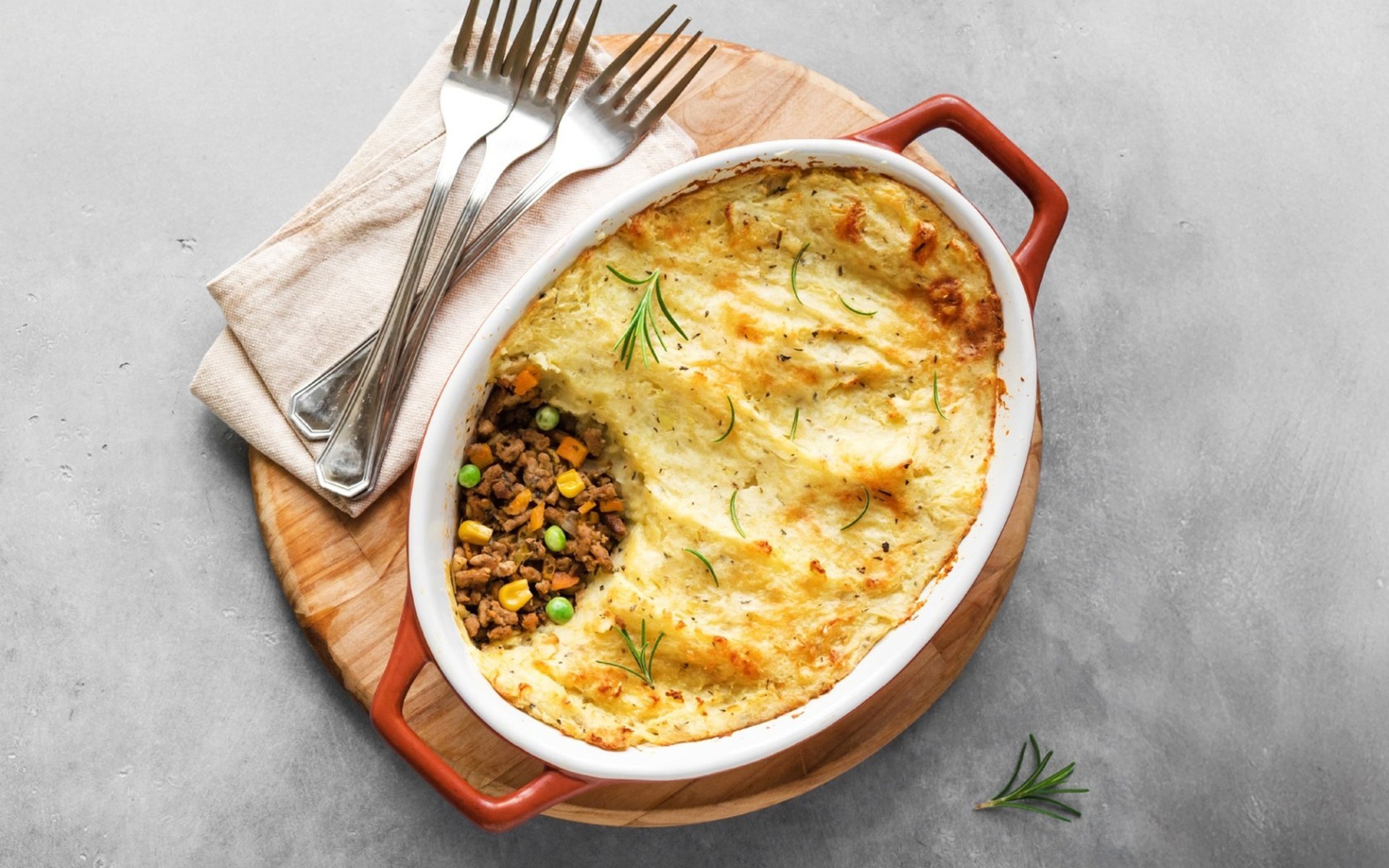hepherds and Cottage Pie

Beyond its outstanding tourist attractions and museums, England also excels in its culinary offerings. With a long and rich cultural history, some British dishes have been passed down through generations. Today, we invite you to discover two classic English dishes: Shepherds and Cottage Pie.
The Origin of Shepherds Pie: From Leftover Lamb to Popular Dish
Shepherds and Cottage Pie are classic dishes with a long history dating back to the early 17th century. This classic dish is believed to have originated as a meal for Irish shepherds, who transformed leftover food into new dishes. Especially with lamb, which was considered a luxury, housewives would mince leftover meat, mix it with vegetables and spices, and then top it with mashed potatoes before baking. They used potatoes because they were inexpensive, and a large quantity of potatoes often remained after being served with roasted meat. Once the new dish was created, they named it Shepherd's Pie, meaning the shepherds pie.
The first mention of Shepherds Pie in England appeared in a cookbook titled The Art of Cookery by Hannah Glasse, an English author, published in 1747. This book included a recipe for Shepherd's Pie, consisting of minced lamb, onions, gravy, and topped with mashed potatoes. After its publication, this book became the most famous cookbook of that century, making Shepherds Pie instantly more popular in England.
The Birth of Cottage Pie: When Beef Took the Stage
Later, in the late 18th century, working-class people in northern England began using beef to create Shepherds Pie. They preferred beef over lamb, and to avoid confusion that this dish was not a pie made from lamb, they created a new name: Cottage Pie, meaning cottage pie. This name arose because the dish gained popularity among the working class who often lived in small cottages in rural England. Furthermore, since this dish was made from beef and not lamb, using the name Shepherds Pie would contradict its ingredients.
From Humble Beginnings to Elegant Cuisine: Evolution and Cultural Value
Historically, these dishes were considered food for farmers and the working class, not particularly expensive. However, over time, they became more luxurious. This transformation is partly due to changing perceptions and the use of higher-quality ingredients. For example, many chefs today use expensive and high-quality cuts of meat instead of leftover scraps, or they might add costly ingredients like truffles and foie gras to the dish. Additionally, the presentation has become more sophisticated; instead of being served in a simple baking dish, many chefs might serve individual portions with various garnishes. This is why these dishes have become popular among all social classes in England.
Over the years, Shepherds and Cottage Pie have become beloved dishes in the United Kingdom and other parts of the world. They are often served in restaurants of all levels, from casual eateries to high-end establishments, and are popular choices for family dinners and gatherings, adapted with various ingredients.
It is evident that the frugality and resourcefulness of people in the past, combined with creativity in transforming food scraps into new dishes, have created a valuable cultural legacy for modern generations. It also encourages people to pay more attention to food waste, as access to food can be challenging for people in some areas, while others may have an abundance of food, leading to food waste. Therefore, the delicious Shepherds and Cottage Pie stand as recognized examples of valuable and tasty food waste solutions worldwide.


